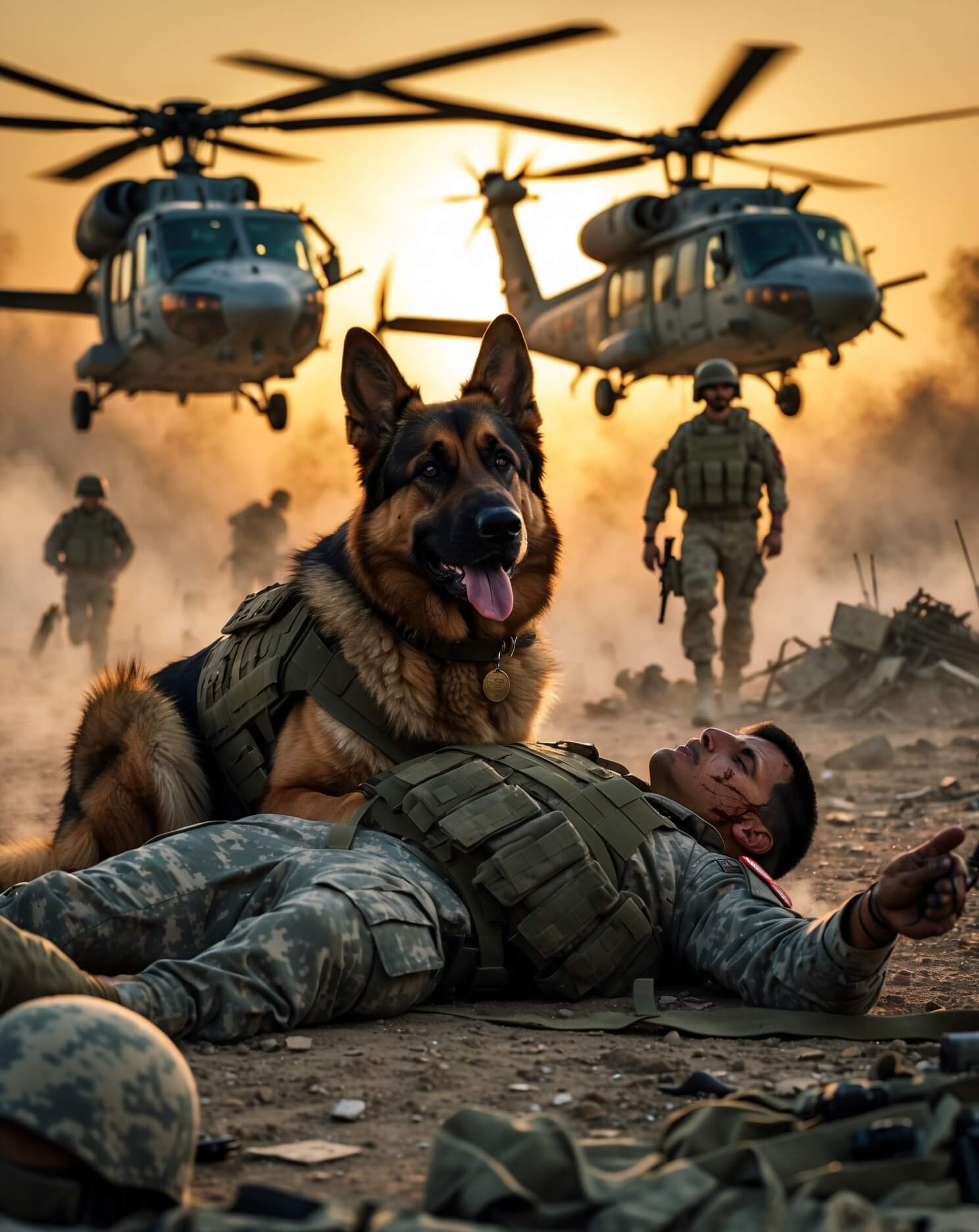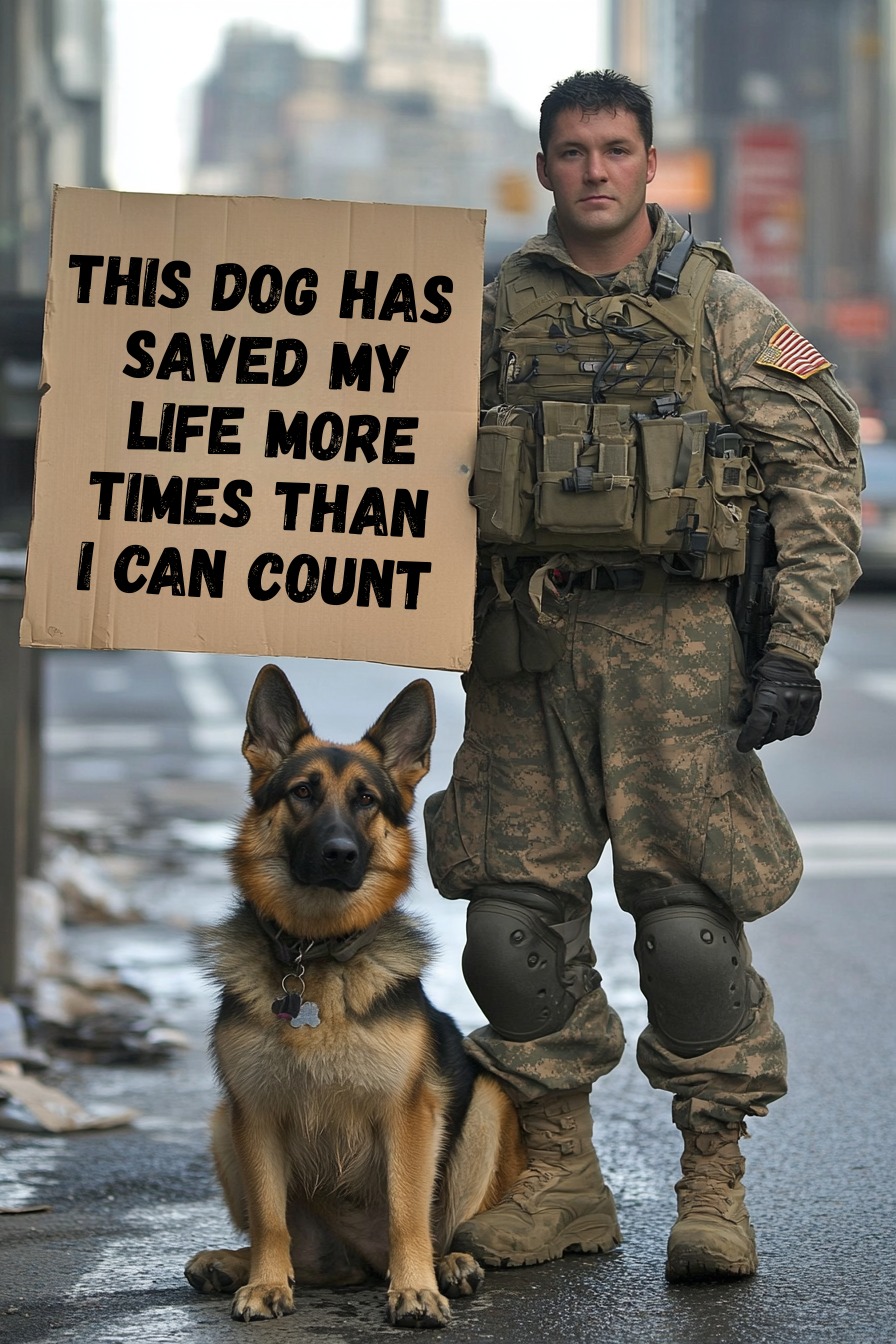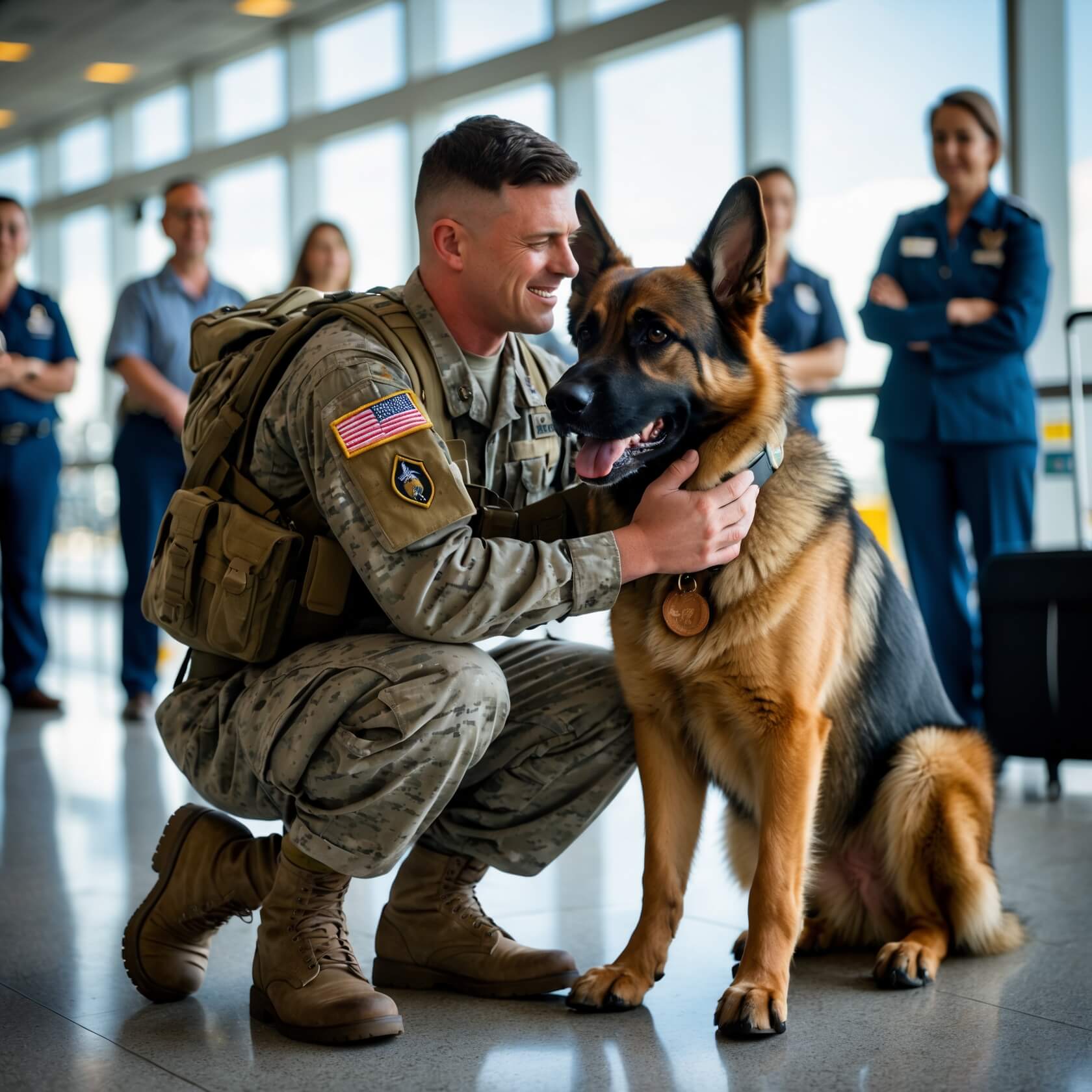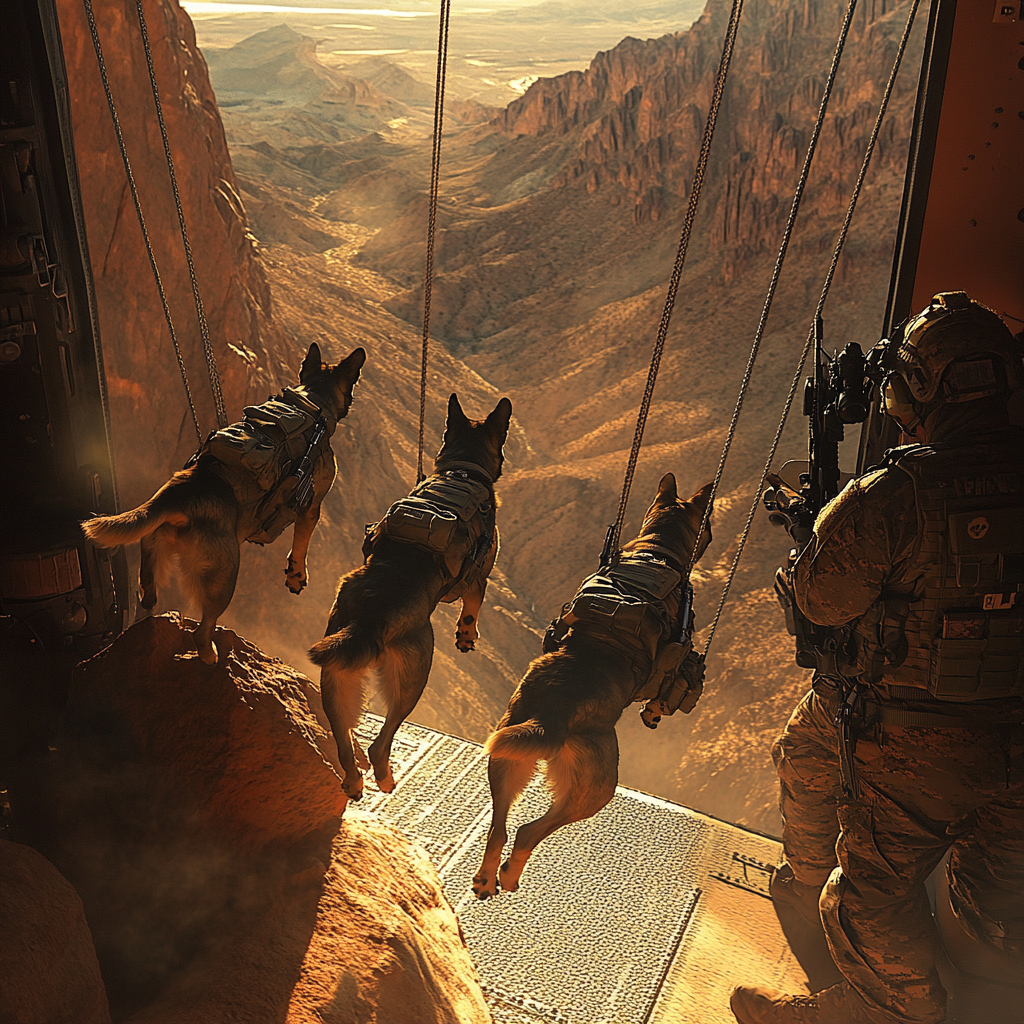Sergeant Rex: The Explosive Detection Dog Who Became a Hero, Saved Lives, and Never Stopped Serving
They say heroes come in all shapes and sizes. Some wear boots. Others walk on four paws.
Rex was born into service. A sturdy German Shepherd with focused eyes and boundless energy, he was trained from a young age to detect explosives. By two years old, he could find a hidden IED faster than any tech on the base. But he wasn’t just a tool—he was part of the team.
Assigned to Sergeant James McAllister’s unit in Kandahar, Afghanistan, Rex became more than a working dog. He became a brother, a guardian, a source of calm in a place where life and death danced too closely together.
James used to talk to Rex during long night patrols like he was human.
“I miss home,” he’d whisper. “Think Mom’s still keeping that porch light on?”
Rex would look up, ears twitching like he understood. Maybe he did.
Over three deployments, Rex sniffed out 38 roadside bombs. He saved lives—dozens of them. The guys in the unit started calling him “Sergeant Rex,” and no one argued. He got a place at the campfire, a nickname, and even his own set of dog tags that James had made unofficially.
Then came that day.
A recon mission through a remote village had gone quiet—too quiet. James’s squad advanced slowly, with Rex leading the way. That’s when the first shot rang out. An ambush. Chaos erupted. In the confusion, a young private—Tyler—was hit and dropped, exposed and bleeding.
Before anyone could reach him, Rex broke protocol. He ran directly into the line of fire and threw his body over Tyler’s. A second shot hit the ground nearby. Shrapnel tore into Rex’s flank. But he didn’t move. He stayed there until James and two others could drag them both to cover.
Rex was medevac’d out with Tyler.
For days, the unit didn’t know if he would survive. The silence felt heavier than any firefight.
But he pulled through.
His recovery was long. Vets said he’d never return to active duty, and that was fine by everyone. He’d already given more than most humans ever would.
Back in the States, Sergeant James applied to adopt him the moment the paperwork opened. There wasn’t a dry eye when Rex limped off the plane and ran straight into his old handler’s arms.
Now, years later, Rex lives in quiet retirement. He still wears his vest sometimes—just around the yard. And every Memorial Day, James and Rex walk together to the war memorial in town. People stop to salute him. Children ask to pet him. One year, a mother said, “My son made it home because of dogs like yours.”
Rex just wagged his tail and laid beside the wreath of poppies.
Because heroes don’t ask for recognition.
They just serve.







